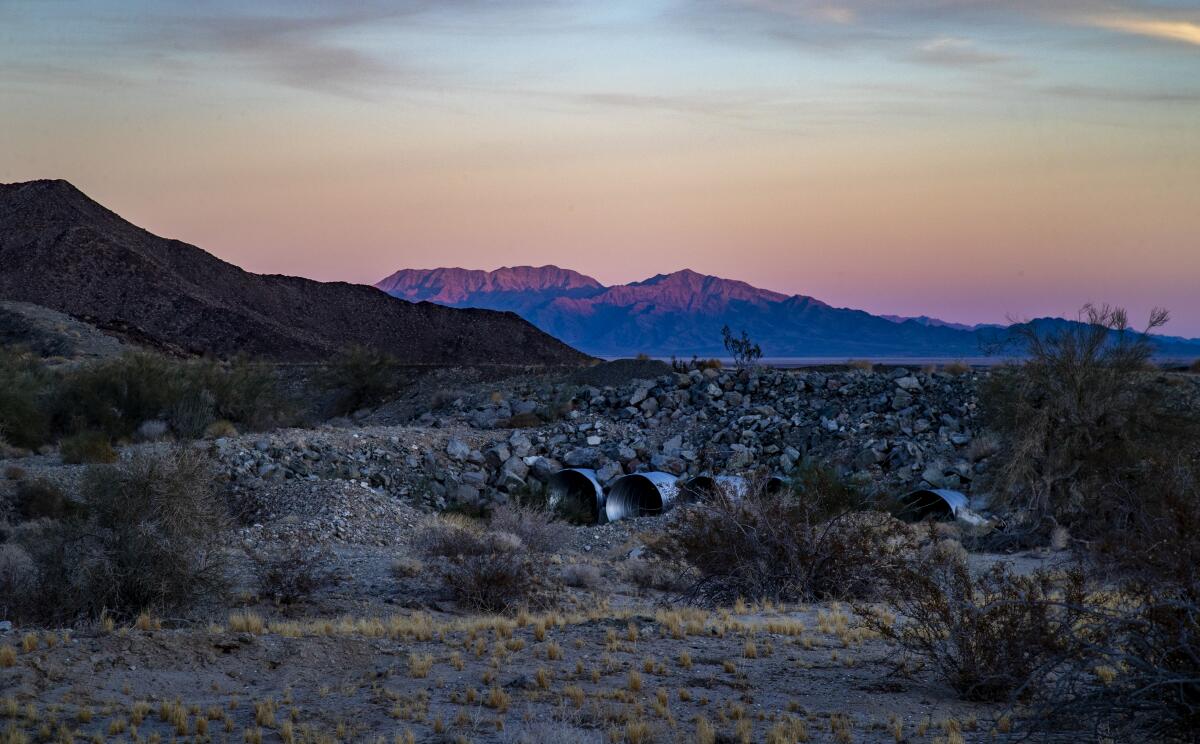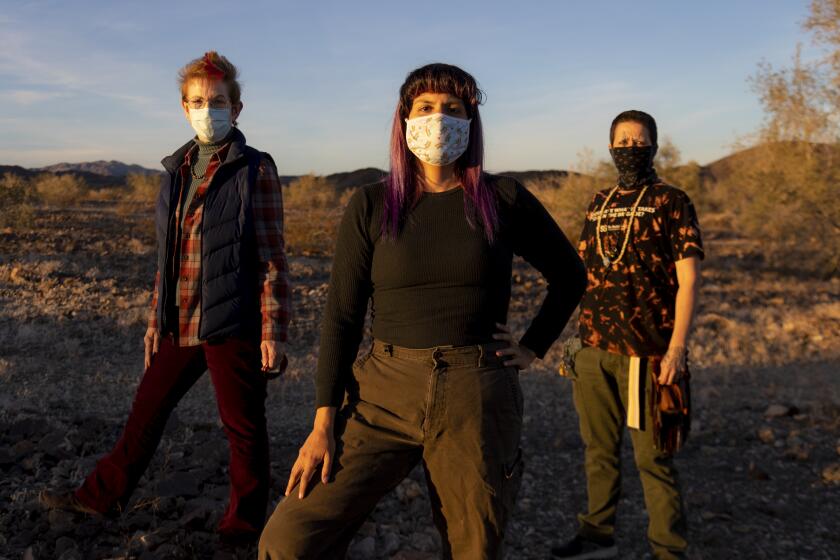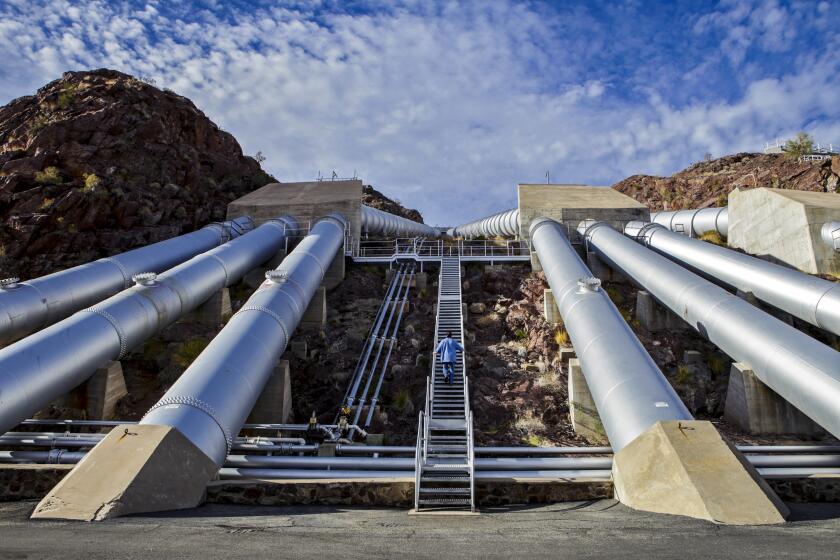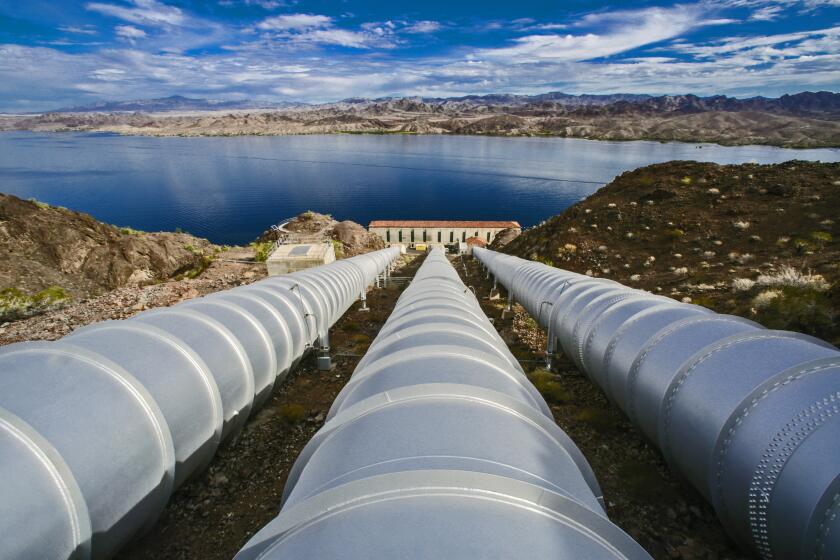State launches audit of sexual harassment policies at powerful Southern California water agency

- Share via
State authorities approved an audit of the Metropolitan Water District of Southern California over its handling of sexual harassment complaints, following allegations that leaders at the powerful water agency tolerated bullying and abuse of women in the workforce.
The audit was approved during a hearing Wednesday afternoon of the Joint Legislative Audit Committee and comes after a Times investigation this year found a pattern of complaints from women enrolled in the district’s trades apprenticeship program.
‘They thought I was so low’: Women say they were harassed, bullied, ignored at powerful water agency
In interviews with current and former staffers and reviews of district records, court documents and audio recordings, The Times found a pattern of complaints alleging harassment and bullying of women at the Metropolitan Water District.
Only 18 women worked in trades positions for the district between 2005 and 2019, according to district records. Six filed equal employment opportunity complaints with the district, records show.
In interviews with The Times, women said they were ignored or dismissed by agency officials as they complained and pleaded for help.
Three said they were pressured to continue working around men they accused of abusive behavior or to seek lower-paying positions.
In one case, a woman was transferred to a facility more than 100 miles from her home, a move that split up her family. Two of her children soon left because there was no high school at the remote desert location.
Much of the alleged harassment occurred in remote areas where housing and work sites are separated by miles of barren landscape. Women described being subjected to unwanted touching, sexual slurs, ridicule for taking “a man’s job” and physical intimidation.
District leaders have said they are committed to getting to the bottom of the allegations and taking action to make employees feel safe.
After employees began speaking out publicly, the board contracted with Shaw Law Group to conduct an independent review of workplace conditions.
Kathy Viatella, executive legislative representative for the water district, said during the hearing that the agency “stands ready to fully cooperate” with an audit.
She said that Shaw Law Group would be briefing the MWD’s board of directors on the findings of its investigation in late July and that the agency is “fully prepared to take appropriate actions to effect positive change in our workplace.”
“Metropolitan is eager and open to learn from the past so we can be the best Metropolitan possible in the future,” she said.
Donald Nash ran the pumping plants and pipelines that deliver much of Southern California’s drinking water — and exerted a tyrannical presence
But the February investigation by The Times sparked widespread concern. Los Angeles County leaders as well as those from the cities of Los Angeles, Long Beach and West Hollywood announced support for a state audit of workplace policies at the MWD, a major source of drinking water to nearly 20 million people across the region.
Los Angeles City Council President Nury Martinez threatened to sever the city’s connection to the agency if the allegations weren’t addressed.
A subsequent Times story in March revealed how the top manager of the district’s sprawling desert aqueduct system exerted a tyrannical presence in isolated worker camps. District employees accused the manager, Donald Nash, of recklessly endangering employees, drinking on the job and engaging in erratic, abusive behavior.
Nash was fired in 2019 after a lengthy district investigation, and he killed himself at his home near one of the worker camps.
Council President Nury Martinez requested a report on the city’s relationship with the Metropolitan Water District of Southern California after a Times article detailed a pattern of accusations from women who worked there.
The events raised questions about the MWD’s oversight of workers.
The 38-member board of directors was never briefed about Nash’s suicide and the circumstances of his firing.
Assemblyman Mike Gipson (D-Carson) cited The Times’ reporting in his Feb. 25 audit request letter, saying that a more comprehensive review “is desperately needed to provide justice for women and LGBTQ+ individuals working at Metropolitan.”
“Today’s action is a step forward in providing justice for all the men and women that were affected by this traumatic experience without any repercussions to their abuser,” Gipson said in a statement to The Times.
Gipson asked that the audit focus on how the MWD has handled workplace bullying and equal employment opportunity complaints, policies on sexual harassment, alleged retaliation against complainants, procedures for reporting safety concerns and the district’s use of nondisclosure agreements to settle allegations of misconduct, among other issues.
Several employees called in during the committee hearing Wednesday to support the audit request, alleging they had experienced bullying, harassment and retaliation during their time with the district.
“No one else should have to go through what I went through,” said Daniel Rodriguez, a three-year employee and a combat veteran.
Ellen Mackey, representing the district employee union’s women’s caucus, said there was a “legacy of abuse” at the agency that the state audit would help to root out.
“The public is watching and demanding a state audit now,” she said.
More to Read
Sign up for Essential California
The most important California stories and recommendations in your inbox every morning.
You may occasionally receive promotional content from the Los Angeles Times.














